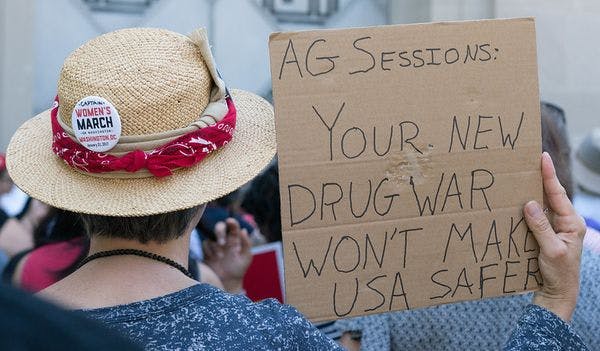Victoria Pickering - Flickr - CC BY-NC-ND 2.0 DEED
Amnesty International's portal on drug policy reform
Drug control policies are failing.
Decades of harsh laws that punish and stigmatize people who use drugs and others involved in the drug trade have led to mass incarceration, disease, suffering and violence. Criminalizing drugs does not decrease their use or supply. Instead, it drives the trade underground, increases the harms of using drugs and fuels organized crime, corruption and violence.
The prohibition of drugs directly impacts our right to health. People who use drugs are denied access to medical treatment or are deterred from seeking medical assistance for fear of being reported to the authorities. This increases the risk of overdose and other threats to their life and health.
Drug policies designed to punish people exacerbate the risks and harms associated with drug use. These policies can lead to increased transmissions of HIV and other diseases. They also obstruct access to drugs for medical purposes, including for pain relief and palliative care, resulting in further harm and suffering for millions of patients.
What is the “war on drugs”?
The term “war on drugs” was first used in 1971 by US President Richard Nixon with his aggressive and discriminatory campaign to enforce drug prohibition. Since then, it has been used by many governments around the world to launch crackdowns on people who use drugs and reduce the trafficking of drugs. These campaigns rely on harsh punishments to deter people from using or selling drugs.
From mass killings in the Philippines and the application of the death penalty for drug offences in Malaysia, to mass incarceration in the USA and torture in Mexico, the “war on drugs” has been a driver of widespread human rights abuses.
There is growing evidence from every region in the world that the “war on drugs” fails to decrease the use and availability of drugs. Instead, it undermines the rights of millions of people, exacerbates the harms of using drugs, and intensifies the violence associated with illicit markets.
In reality, the “war on drugs” has been a war on people.
It disproportionately affects the poorest and most marginalized communities, who carry the burden of this failed strategy. It traps entire communities in cycles of incarceration, violence and poverty.
